PTI has no panacea for education conundrum
Mainstreaming of religious seminaries, curriculum, regularisation of FDE employees remain unfinished agendas of 2018
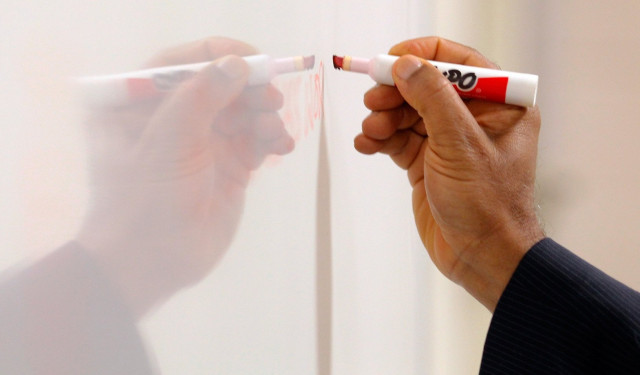
Representational image. (PHOTO: REUTERS)
 The electoral promises of revamping the entire education system and even declarations of making education one of its top priorities could not hide the fact that the sector in the federal capital continues to present the Pakistan Tehreek-i-Insaf (PTI) government — much like its predecessors — a massive challenge.
The electoral promises of revamping the entire education system and even declarations of making education one of its top priorities could not hide the fact that the sector in the federal capital continues to present the Pakistan Tehreek-i-Insaf (PTI) government — much like its predecessors — a massive challenge.Over the past year, the first full calendar year that the PTI government spent in power, continued to manifest for the government the full extent of challenges that they have to tackle especially in an overtly complicated environment where they have shrinking fiscal flexibility.
During 2019, the government had to tackle the issue of mainstreaming religious seminaries, devising a uniform curriculum — the deadline for implanting is coming soon, regularisation of Federal Directorate of Education (FDE) employees and the appointment of its director-general.
The government took promising first steps in tackling all of these issues head-on but it quickly found itself mired in each of these.
Education officials, who did not wish to be named for fear of retribution, said that there are as many as 40,000 posts for teachers in government-run schools and colleges in the federal capital under the FDE. However, only 9,000 of these posts are currently occupied and a whopping 31,000 slots are empty and have only partially been filled by daily wagers. Over the past year, the FDE and the federal government failed to recruit on these empty slots.
One of the top issues the government had to tackle over the year was to bring religious seminaries into the mainstream. For this purpose, a project worth Rs1.86 billion was prepared.
Despite numerous meetings between the different madrassa boards — representing the different schools of thought —the FDE and the ministry of religious affairs officials failed to yield any solution as the madrassas baulked at some of the details sought in the government registration forms.
To move forward, the government was eventually forced to change some clauses in the forms. The matter has been held up as the forms need to be reprinted.
To register and facilitate seminaries operating across the country, the government did set up the Directorate General of Religious Education (DGRE) recently. However, the project still has a lot of distance to cover.
The government could not appoint a permanent Director-General (GD) for the Federal Directorate of Education (FDE) last year.
The government opted to take the ad-hoc route by appointing a Basic Pay Scale (BPS) 19 officer from the Competition Commission of Pakistan (CCP) as the joint secretary of the education ministry. The same official was then given the additional charge as the director-general of FDE.
After three months, a summary for his extension was sent to the establishment division which was rejected, citing that a non-civil servant was ineligible to assume the related office.
No new school
Even as the population of the federal capital has doubled over the past two decades no new school or college was built in the city during the year.
The government though managed to enhance the enrollment rate in schools of the federal capital.
The government had identified 11,000 out-of-school children in the federal capital and planned to enrol them over three-phases. However, only two phases were completed and enrolment of out-of-school children aged between 10-15 years-old in technical education programmes in the third phase could not be launched.
The government also failed to hire staff to drive the 200 new buses which had been procured under the Prime Minister’s Education Reforms Programme (PMERP), launched by deposed premier Nawaz Sharif.
The incumbent government did not earmark any sum for the maintenance of these buses either.
A project under PMERP to renovate schools was also suddenly stopped as it fell victim to the government’s austerity drive.
Despite clear orders from the courts, some 1,700 FDE daily-wage teaching and non-teaching staff from BPS-1 to 15 could not be resolved.
Sources said that so far, there has not been any meeting of the committee formed to oversee the matter.
Meanwhile, the ministry has referred the matter of regularising some 600 employees of BPS 16 and above to Federal Public Service Commission (FPSC).
Uniform curriculum
A key electoral promise of the PTI government ahead of the July 2018 elections was to introduce a uniform curriculum whereby the entire country will be brought at par educationally. The federal cabinet also approved the move for all educational institutions in the country, including some 30,000 madrassas, but the education ministry has yet to finalise the syllabus.
The education ministry spent the entire year pouring over reforms but has yet to come up with something practical.
Professor Rafique Tahir, who took charge as the National Curriculum Council (NCC) to draft the new curriculum said that after reviewing curricula from across the globe and the different curricula in vogue in the country, a draft had been finalised of the new curriculum had been finalised and sent to the provinces for their inputs in November.
The Sindh education ministry did not give a welcoming response while the Punjab education department issued an advertisement for changes in curriculum.
According to sources, Sindh has objected to the role of the federation in devising a curriculum given the 18th Constitutional Amendment which makes education a provincial subject
HEC funds cut
The biggest outcry in the education sector — particularly higher education — were cut for the Higher Education Commission (HEC) in the budget for the fiscal year 2019-20. The cuts meant that public and semi-private universities across the country were starved of critical funds.
Most the varsities are unable to pay salaries to their employees, causing them to stage protests. Development work in varsities also came to a grinding halt.
To maintain cash inflow, varsities were forced to hike semester fees resulting in protests from students.
Published in The Express Tribune, January 2nd, 2020.

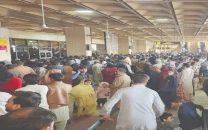
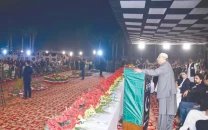
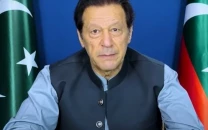
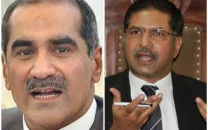














COMMENTS
Comments are moderated and generally will be posted if they are on-topic and not abusive.
For more information, please see our Comments FAQ